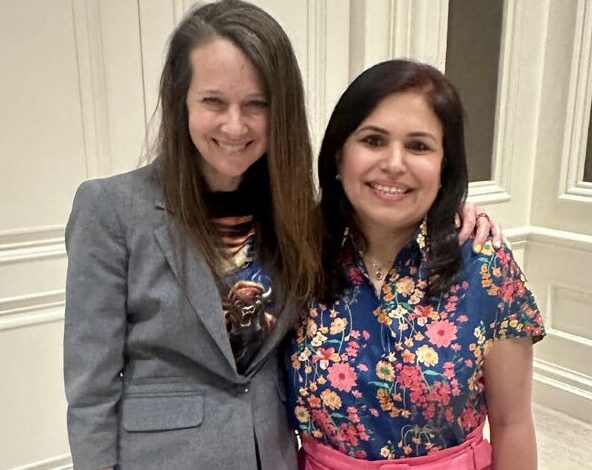Ryan Clarke: Empowering Change at Girls Who Code – A Leader in Research & Strategy

Ryan Clarke is a name that has become synonymous with progress and innovation in the tech world, particularly in the nonprofit sector. As the Vice President of Research and Strategy at Girls Who Code, Ryan Clarke has played a pivotal role in shaping the organization’s mission to close the gender gap in technology. With an intense research, strategy, and nonprofit management background, Clarke’s journey is an inspiring example of leadership and dedication. In this article, we will explore Ryan Clarke’s career, his leadership at Girls Who Code, and how his work continues to impact the tech industry for young women and nonbinary individuals.
Early Life and Education of Ryan Clarke
Ryan Clarke’s journey into nonprofit work and research began with a strong academic foundation. Born and raised in the United States, Ryan attended Fordham University, earning a Bachelor of Science in Psychology and Women’s Studies. His scholarly interest in psychology and social issues sparked a desire to understand the underlying causes of gender disparities, a theme that would shape much of his career.
After completing his undergraduate studies, Clarke pursued a Master’s degree in Psychology at Boston University. His time at Boston University helped refine his research skills, which would later become an asset in his career at Girls Who Code. This academic background laid the groundwork for his future work, particularly in understanding human behaviour, evaluating social programs, and advocating for equality.
Ryan Clarke’s Career Path Before Girls Who Code
Ryan Clarke’s career trajectory before joining Girls Who Code is marked by his work in research and analytics. He spent several years at Metis Associates, a research consulting firm, gaining valuable experience in grant research and program evaluation.
Metis Associates: Laying the Foundation for Impactful Research
Clarke began his tenure at Metis Associates as a Research Intern in 2005, quickly progressing through the ranks due to his sharp analytical skills. Over nearly 12 years, Ryan held various positions, including Research Analyst, Research Associate, and Senior Research Associate. His work at Metis Associates involved evaluating and researching programs in the nonprofit sector, particularly those focused on education and social justice. Clarke’s research helped organizations improve their strategies and impact, setting the stage for his eventual move to Girls Who Code.
Through his experiences at Metis Associates, Clarke honed his ability to assess data, interpret complex trends, and provide actionable recommendations—skills essential in his leadership role at Girls Who Code.
Ryan Clarke’s Role at Girls Who Code
In March 2017, Ryan Clarke made a pivotal career move when he joined Girls Who Code as the Director of Research and Evaluation. This was the beginning of his long tenure with the organization, during which time he would continue to rise through the ranks.
The Director of Research and Evaluation Role
As Director of Research and Evaluation, Clarke’s primary responsibility was to measure the effectiveness of the organization’s programs. His role involved collecting and analyzing data to understand the impact of Girls Who Code’s efforts on its students, teachers, and partners. By assessing the organization’s various programs, including coding camps and after-school clubs, Clarke helped shape decisions that ensured the programs reached their full potential.
Through his research leadership, Clarke demonstrated the critical need for diverse female representation in technology and the direct benefits of programs designed to close this gender gap. His efforts contributed to Girls Who Code becoming one of the leading organizations advocating for women in tech.
Senior Director of Research and Analytics
Clarke’s success as Director of Research and Evaluation led to his promotion to Senior Director of Research and Analytics in January 2020. In this position, Clarke’s work evolved to focus more broadly on the strategic use of data across the organization. He was instrumental in designing long-term strategies that allowed Girls Who Code to scale its impact. Clarke helped to refine the organization’s research methods, ensuring that the data collected would support growth, improve program outcomes, and attract necessary funding.
As the Senior Director, Ryan Clarke focused not only on internal analytics but also on how external factors, such as policy changes and industry trends, affected Girls Who Code’s success. His analytical insights were key to adapting the organization’s approach to ensure it remained at the forefront of tech education for young women.
Vice President of Research and Strategy
In September 2023, Ryan Clarke was promoted to Vice President of Research and Strategy, marking a significant step forward in his leadership journey. As Vice President, Clarke is responsible for overseeing the organisation’s short-term and long-term strategic goals, ensuring that data-driven decision-making informs every aspect of Girls Who Code’s mission. His role involves managing the research team and the strategic direction for how the organization engages with partners, funders, and policymakers.
Clarke’s experience in research and strategy is central to his ability to bridge the gap between data analysis and organizational growth. As Vice President, he ensures that the organization not only provides high-quality educational programming but also actively works toward creating systemic change in the technology industry.
Ryan Clarke’s Impact on Girls Who Code
Under Ryan Clarke’s leadership, Girls Who Code has seen significant success in closing the gender gap in technology. The organization’s programs have empowered thousands of young women to pursue careers in tech while also providing mentorship and support. Clarke’s efforts have helped refine the organization’s methodology, which has successfully engaged girls in computer science and tech-related subjects.
Closing the Gender Gap in Tech
Ryan Clarke’s research-driven approach has been essential in understanding young women’s barriers to pursuing tech careers. By evaluating the effectiveness of Girls Who Code’s programs, Clarke has ensured that the organization remains responsive to the challenges faced by its participants. Whether it’s through providing role models, addressing cultural biases, or offering hands-on experience, Girls Who Code, under Clarke’s leadership, continues to make strides in empowering the next generation of women in tech.
Ryan Clarke’s Leadership Style and Vision
Ryan Clarke’s leadership style can be described as collaborative, data-driven, and empathetic. He believes that to effect lasting change, it’s essential to measure success and understand the stories behind the numbers. Clarke’s work with Girls Who Code reflects his commitment to diversity, equity, and inclusion, which are core to the organization’s mission. He aims to build an equitable future where women and nonbinary individuals are equally represented in technology.
Through strategic planning and innovative research, Clarke ensures that Girls Who Code teaches coding and fosters confidence and resilience in its students. His leadership helps bridge the gap between education, opportunity, and real-world applications, ensuring that the women of tomorrow have the tools they need to succeed in the tech world.
Conclusion
Ryan Clarke’s journey from research roles in nonprofits to becoming the Vice President of Research and Strategy at Girls Who Code is a testament to his dedication to social change. His work continues to impact the future of technology by empowering the next generation of women and nonbinary individuals to pursue their dreams in the tech industry. As Girls Who Code grows, Ryan Clarke remains a key figure in shaping its vision and strategy for closing the gender gap in technology, making him a true leader in this vital mission.



